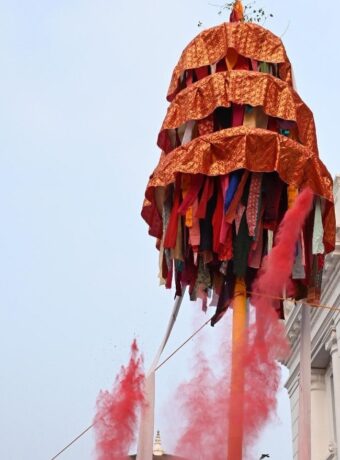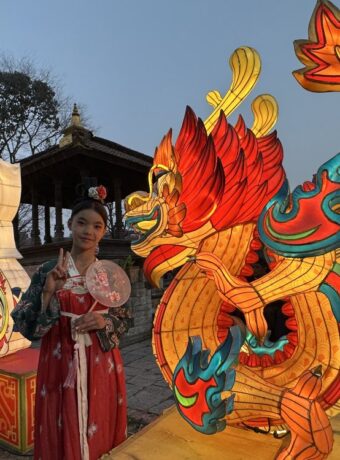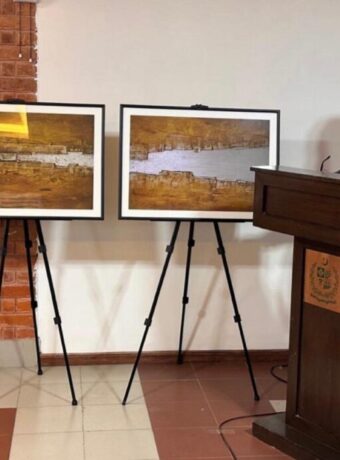Teej
The 'Teej' festival is also called 'Haritalika'. Women fast and wish for a prosperous life of their spouse on this festival which falls on the third dark day of the lunar month according to Nepali month of Bhadau.
Women rejoice with various delicious dishes known as 'Dar' a day before 'Teej' and fast on the next day as per the tradition. The three day festivity begins with 'Dar' on the second day of the fortnight in the month of Bhadra and is marked with fasting and cultural programmes next day.
Women on this day take ritual baths in the morning and offer worship while in the evening. They pay homage to Lord Shiva, light lamps and spend the night awake.
The festivity comes to an end on the fifth day of fortnight after worshiping the legendary 'Saptarishi' (seven sages).
This unique festival of Nepali women is also a celebration of sisterhood as sisters gather at natal home and indulge in jubilant dancing and singing.
The legend has it that Parbati, the daughter of Himalayas, was on her maiden fast, wishing for the health and the well being of her spouse, Lord Shiva. Since then the same day has been recognized as the Haritalika Teej.
Married women put on bangles, ‘Pote’ (a necklace made of glass beads), ‘Tilahari’ and ‘Sindur’ (crimson powder) considered the symbols of good luck and dress themselves up in red saris or other red outfits and adorn themselves with different kinds of ornaments.
Both married and unmarried women perform various ‘pujas’ (worships) and observe fasting, praying for fulfillment of their wish for a happy and prosperous conjugal life.
The Pashupatinath temple in the capital sees overwhelming number of women devotees this day, with temples of Lord Shiva attracting a huge crowd of revellers across the country. The Government has also announced a public holiday today for all women employees.



